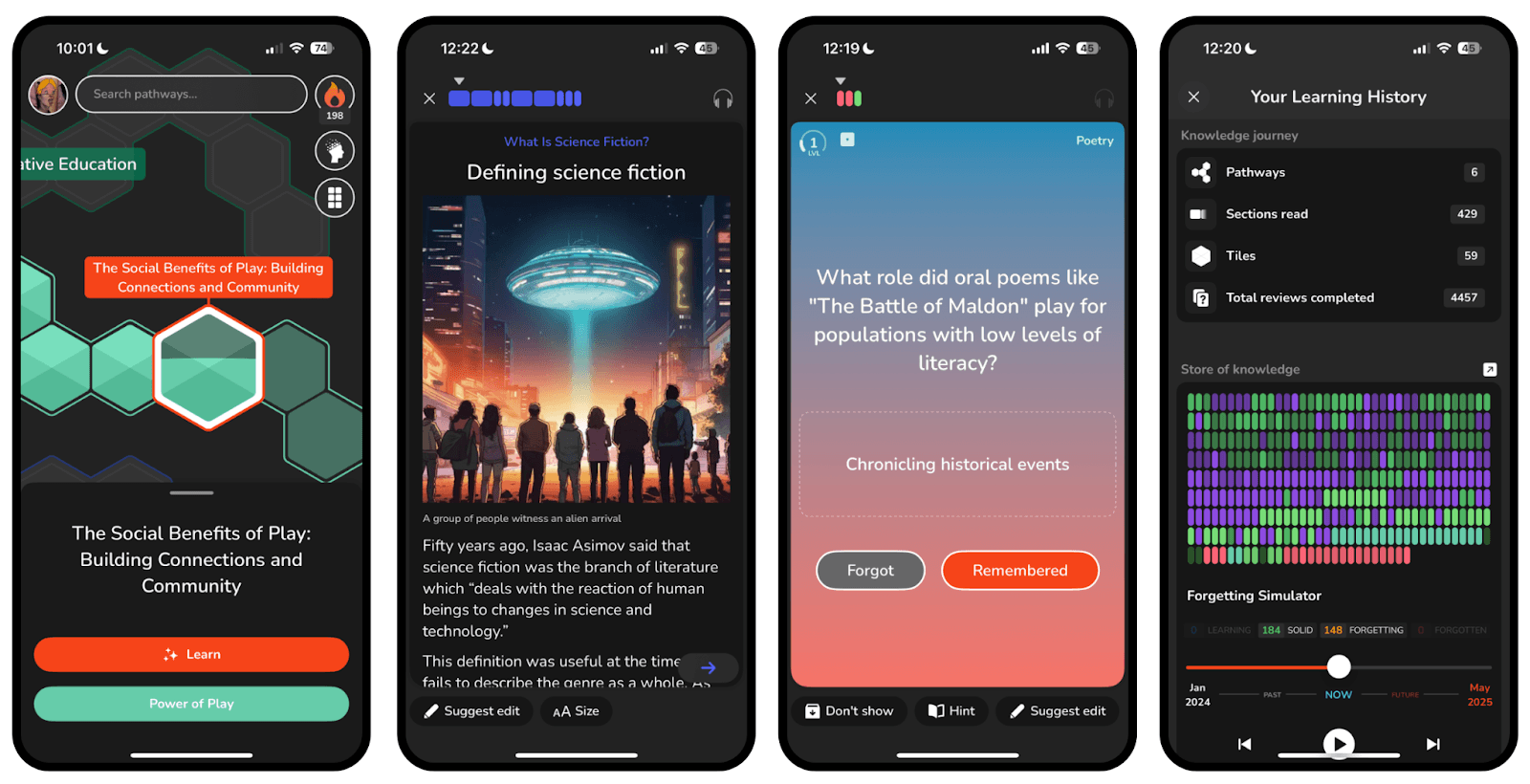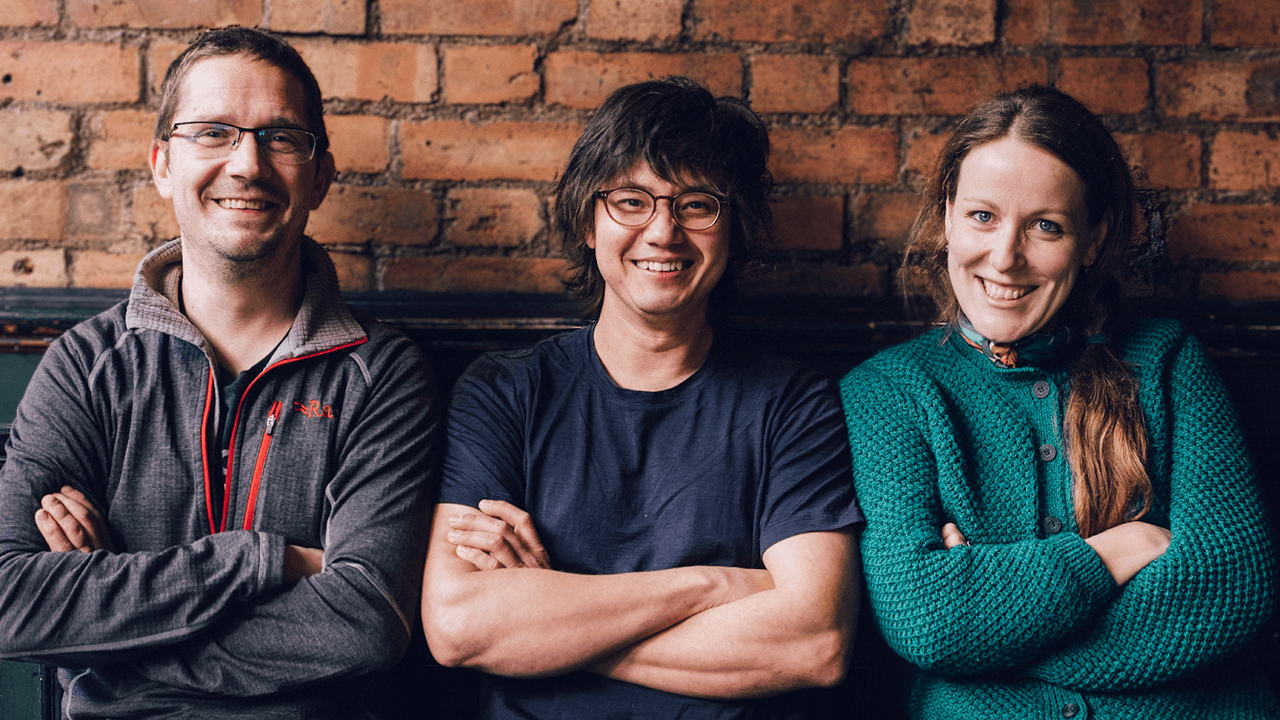London-based “learning space” startup Kinnu has raised $6.5 million in a new funding round. Turning the tables on what we’ve come to know as edtech, Kinnu is employing an AI-powered ‘learning engine’ that shifts the curriculum away from the needs of the content creator and focuses them squarely on the learner.
 Kinnu’s $6.5 million round was led by LocalGlobe (a member of the Phoenix Group) and Cavalry Ventures and drew the participation of Spark Capital and Jigsaw, as well as angel investors including Tom Hulme from Google Ventures, Guy Podjarny of Snyk, and Moonbug Entertainment co-founder Rene Rechtman. Last year the company announced a $2.4 million pre-seed round, now bringing the total raised to just shy of $9 million.
Kinnu’s $6.5 million round was led by LocalGlobe (a member of the Phoenix Group) and Cavalry Ventures and drew the participation of Spark Capital and Jigsaw, as well as angel investors including Tom Hulme from Google Ventures, Guy Podjarny of Snyk, and Moonbug Entertainment co-founder Rene Rechtman. Last year the company announced a $2.4 million pre-seed round, now bringing the total raised to just shy of $9 million.
Surveying the landscape, in 2021 Kinnu co-founders bet that generative AI would rebalance the scales away from the adage “Content is King”, and more in the direction of the technology that enables learners to acquire and retain knowledge.
Where Kinnu stands apart from the crowded space that is edtech is in the fact that they’re employing generative AI, or rather, in the company's own words, "designed by next-level cephalopods who understand the science of learning better than humans", to adapt the experience specifically to and for the learner.
“Ultimately, our mission is to give everyone the power to learn anything they want to,” says Kahler. “We want mastery to be a choice.”

If the names Christopher Kahler and Abraham Müller are ringing any bells, they've previously built and sold a real-time market research startup backed by Accel and Spark Qriously to Brandwatch in early 2019 for an undisclosed amount.
During the duo's post-acquisition sabbatical (read: well-deserved time off), Christopher and Abraham began pondering what kind of company they wanted to build next and found themselves returning to the origins behind Qriously, a deep fascination with learning. Discussing plans with a former investor led to a connection with Kinnu's third co-founder, Hanna Celina, an individual Kahler says has been, "absolutely critical to our success so far."
"Our first conversation just exploded for hours. She really cares and thinks about this space deeply," Kahler tells me. "We began meeting in my garage in Hackney in London, and between boxes of toilet paper, motorcycles, and beer cans, London garages are more crammed than Palo Alto garages, we came up with the core thinking behind Kinnu and we haven't looked back since."
“Our backgrounds are perfectly complementary,” adds Hanna. “I worked at Google, Futurelearn, and Deliveroo and studied at Harvard, so we all bring a unique perspective on what the future of learning could look like and how to build it.”
On the investment, LocalGlobe’s Suzanne Ashman commented, “From LocalGlobe's first meeting with Kinnu’s co-founders, it was clear that their approach to both knowledge acquisition and assessment could deliver huge leaps forward in learning productivity, and give learners more space to focus on the application of knowledge. We're particularly excited about the founder's approach of AI-driven interdisciplinary learning, allowing people to make connections between different areas in a way that hasn't been possible in traditional education institutions.”



Would you like to write the first comment?
Login to post comments